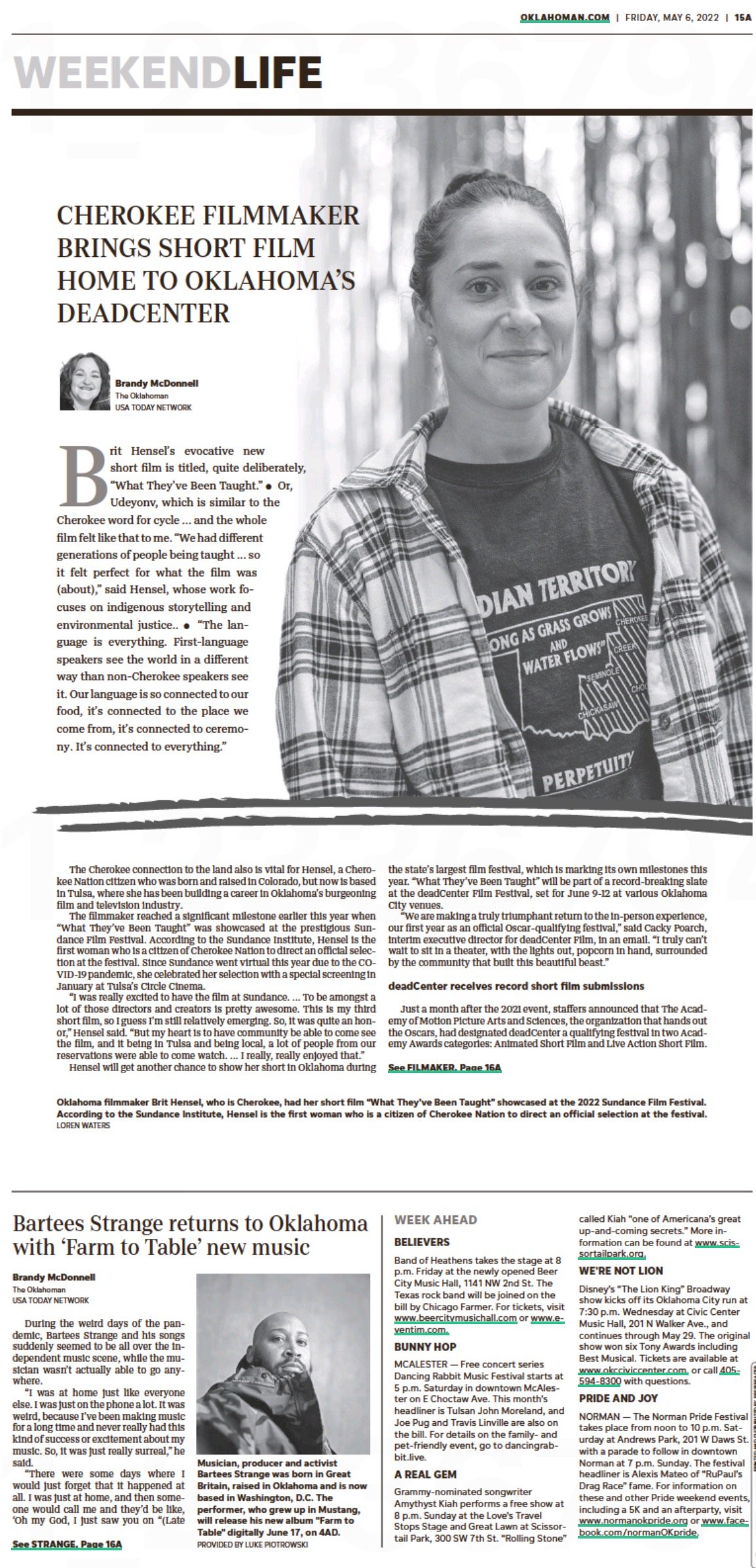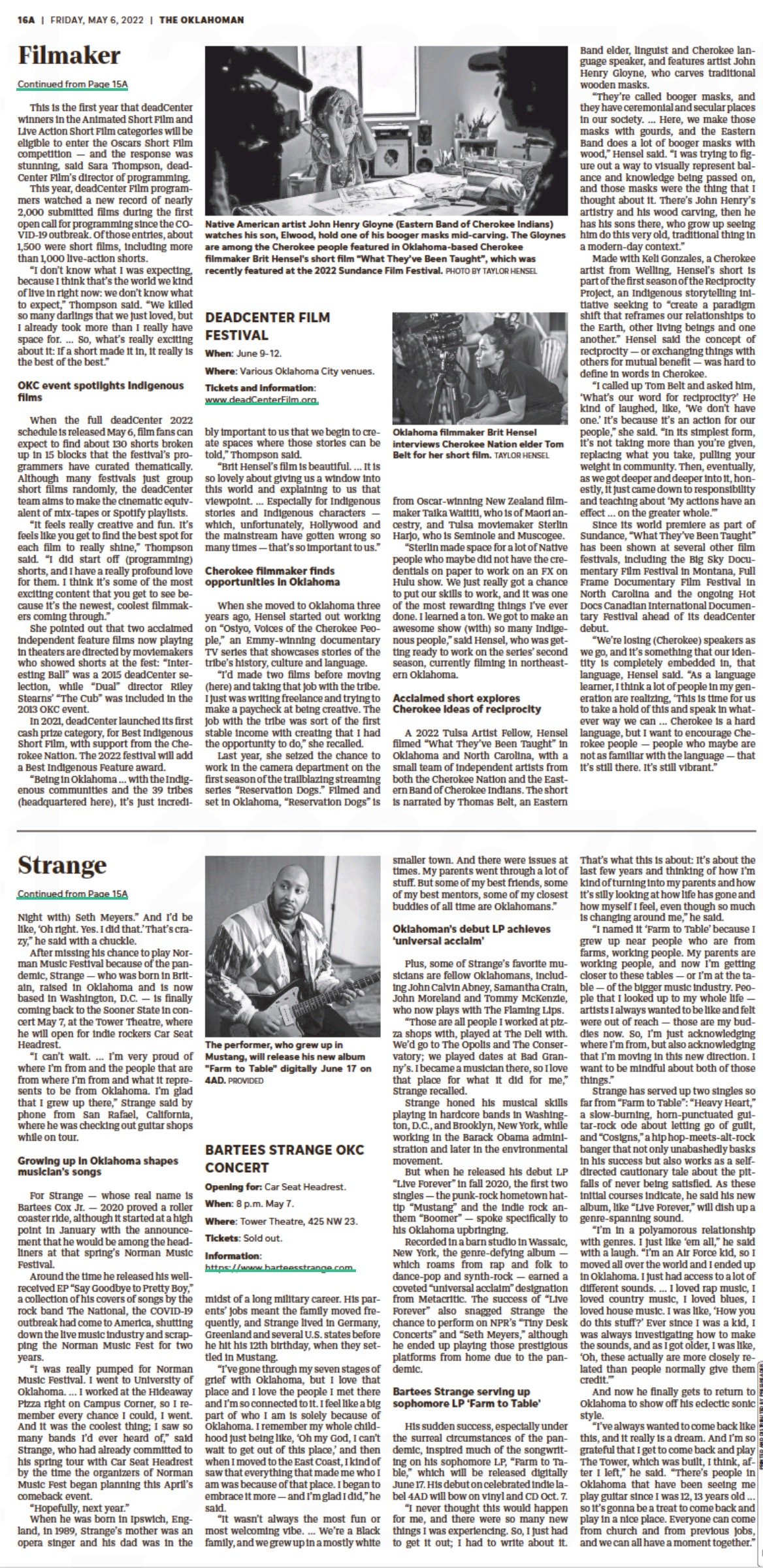Check It Out At Mashpee Public Library - October 14, 2022
“Saturday, October 15, at 4 PM—Join us for a virtual screening of the 9-minute documentary film, “Bounty,” followed by a panel discussion.
In “Bounty,” Penobscot parents and children commemorate their survival by reading and reacting to the Phipps Proclamation, a government-issued proclamation that motivated colonial settlers to hunt, scalp and murder Indigenous people.”
“Saturday, October 15, at 4 PM—Join us for a virtual screening of the 9-minute documentary film, “Bounty,” followed by a panel discussion.
In “Bounty,” Penobscot parents and children commemorate their survival by reading and reacting to the Phipps Proclamation, a government-issued proclamation that motivated colonial settlers to hunt, scalp and murder Indigenous people.
The film will be followed by a panel discussion with Mishy Lesser, the learning director of the Upstander Project; Gkisedtanamoogk, Mashpee Wampanoag, co-chairperson; Maine Wabanaki from the State Child Welfare Truth and Reconciliation Commission, and Linda Coombs, Aquinnah Wampanoag, museum educator and historian.”
Continue reading at The Enterprise Mashpee.
Indigenous-made films about reciprocity inspire conversation on climate
“In honor of Indigenous Peoples’ Day, the first season of original short films made by Indigenous directors on their homelands, presented by Reciprocity Project, a collaboration between Nia Tero and Upstander Project in association with REI Co-op Studios, are now streaming at reciprocity.org and on REI’s YouTube channel.”
“In honor of Indigenous Peoples’ Day, the first season of original short films made by Indigenous directors on their homelands, presented by Reciprocity Project, a collaboration between Nia Tero and Upstander Project in association with REI Co-op Studios, are now streaming at reciprocity.org and on REI’s YouTube channel.
“Stories from Indigenous peoples’ about being in reciprocity with the Earth are essential in delivering messages of truth, healing, and transformative change,” said executive producer Tracy Rector, who is also Managing Director, Storytelling, at Nia Tero. “Our survival is the result of the efforts of many ancestors who have come before us. With the Reciprocity Project films as a guide, we ask ourselves – and you: what kind of ancestor do you want to be?”
Reciprocity Project season one centers knowledge and cultural learnings from Indigenous communities across Turtle Island in the U.S. and Colombia and features films by Indigenous creators who are Gwich’in, Cherokee, Wayuu Iipuana, Passamaquoddy, Shinnecock Indian Nation, and Kanaka Maoli.”
Continue reading at The Sun Journal.
Teaching Indigenous Peoples' Day with the Documentary Dawnland
“About a year ago, a mesh orange fence showed up in a section of a park my family frequents. A tree near the mesh fencing was adorned with stuffed animals at its base; signs offered the explanation. The mesh fence was there to demarcate sacred land. This end of the park was a burial site of children who once attended an expansive Indian school in this part of Albuquerque. The school sprawled across acres. A street crossing through the area still reflects this past: Indian School Road.”
“About a year ago, a mesh orange fence showed up in a section of a park my family frequents. A tree near the mesh fencing was adorned with stuffed animals at its base; signs offered the explanation. The mesh fence was there to demarcate sacred land. This end of the park was a burial site of children who once attended an expansive Indian school in this part of Albuquerque. The school sprawled across acres. A street crossing through the area still reflects this past: Indian School Road.
The city is involved in an extensive process to determine what will be done on this land; how the city will commemorate the lives lost there, but the more complicated reality for our community and for many others across North America is how to navigate an ugly past in which Native American and First Nations children were forcibly removed from their families to be raised in boarding schools or in white families. In both cases, being forcefully separated from their families, heritage, language, and traditions.”
Continue reading at Video Librarian.
Cherokee Filmmaker Brings Short Film Home to Oklahoma's Deadcenter
Reciprocity Project filmmaker, Brit Hensel, is interviewed about her film “What They’ve Been Taught” (Udeyonv). She discusses the importance of language and land in Cherokee culture and her films. ‘The language is everything…Our language is so connected to our food, it’s connected to the place we come from, it’s connected to ceremony.”
Imagine Studios to present 'Dawnland' on March 30
A screening of Dawnland with a panel Q&A is being hosted on 3/30/2022 by The First Religious Society, Unitarian Universalist Church, Congregation Ahavas Achim, Unity on the River, Theater in the Open, and Imagine Studios as part of the Newburyport Indigenous Peoples’ Day Initiative.
“Did you know that for decades, child welfare authorities were removing Native American children from their homes to “save them from being Indian?” It didn’t happen long ago and far away, but in the state of Maine in the late 20th century. Find out more about it when Imagine Studios presents a free screening of Upstander Project’s documentary “Dawnland” streamed online on Wednesday, March 30, from 7 to 9 p.m.
“This is an opportunity for people to see the film,” said Kristine Malpica, executive director of Imagine Studios. “It’s about the legacy of what happened to the native peoples of Maine. The screening is one piece of a larger collaborative Indigenous Peoples’ Day Initiative to bring cultural awareness through education, arts and music events.’”
Continue reading at Wicked Local.
Indigenous film+ online
The Reciprocity Project films are premiering at Big Sky Documentary Film Festival. Read summaries and view trailers of the films here.
“The observation on February 21 of International Mother Language Day focuses attention on various endeavors to support language revitalization and language diversity, including film screenings at the Mother Tongue Film Festival. Other festivals include Big Sky Documentary Film Festival, and other sections look at a new webcast series, an ongoing podcast series a lecture rethinking the impact of the first Native American doctor, Suzanne La Flesche, and filmmaker honors.
The Reciprocity Project
7 short films by Indigenous directors produced by the Reciprocity Project, a co-production of Nia Tero Foundation and Upstander Project. Producers: Taylor Hensel, Adam Mazo, Kavita Pillay, Tracy Rector.”
Continue reading at Indian Country Today.
More than $3.4 million in grants awarded to local arts and culture organizations
Upstander Project is thrilled to be one of the grantees as part of this year’s Boston Cultural Council/Reopen Creative Boston funding!
“Mayor Michelle Wu and the Mayor’s Office of Arts and Culture, in collaboration with the Boston Cultural Council (BCC), today announced 192 arts and cultural organizations have been awarded grants as part of this year’s Boston Cultural Council/Reopen Creative Boston funding. The City awarded a total of $3,422,000 in grants for general operating support and COVID-19 relief.
“This year’s group of grantees are a wonderful reflection of the diversity and vibrancy of Boston’s arts community,” said Mayor Michelle Wu. “From small dance groups, to organizations that focus on engaging communities through film, to some of Boston’s most beloved cultural institutions, each one of these groups plays a vital role shaping our city.’”
Continue reading at City of Boston.
Cherokee filmmaker Brit Hensel secures place in Sundance Film Festival history
Congratulations to Reciprocity Project team member Brit Hensel who is the first woman who is a citizen of Cherokee Nation to direct an official selection at the Sundance festival!
“Tulsa-based filmmaker Brit Hensel enjoys telling Cherokee stories. She’ll be sharing one of those stories with a Sundance audience.
Hensel’s third and newest film “ᎤᏕᏲᏅ (What They’ve Been Taught)” has been selected for the 2022 Sundance Film Festival and will make its world premiere as part of the short film program. She is the first woman who is a citizen of Cherokee Nation to direct an official selection at the festival.
“It’s pretty crazy,” Hensel said of the historic accomplishment. “I guess it is sort of shocking, the idea that it has taken this long for it to happen. But I feel really honored. I try not to think about it too much because it’s an awesome accomplishment and I’m really proud to have done work that people think of in that regard.’”
Continue reading at Tulsa World.

